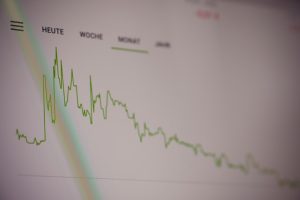Forex, or foreign exchange, is a decentralized market where currencies are traded 24 hours a day, five days a week. The market opens on Sunday at 5 pm EST and closes on Friday at 5 pm EST. However, the market is not open 24/7, as there are specific trading sessions that traders need to be aware of.
The forex market is divided into three trading sessions: the Asian session, the European session, and the American session. Each session has its own characteristics, and traders need to understand these to make informed trading decisions.
The Asian session starts at 5 pm EST on Sunday and ends at 2 am EST on Monday. This session is dominated by the Japanese yen, as Japan is the largest economy in the region. Other currencies that are actively traded during this session include the Australian dollar, New Zealand dollar, and the Chinese yuan.
The European session starts at 2 am EST and ends at 11 am EST. This session is the most active and liquid of all the sessions, as it overlaps with both the Asian and American sessions. The European session is dominated by the euro, as the European Union is the largest trading bloc in the world. Other currencies that are actively traded during this session include the British pound, Swiss franc, and the Scandinavian currencies.
The American session starts at 8 am EST and ends at 5 pm EST. This session is dominated by the US dollar, as the US is the largest economy in the world. Other currencies that are actively traded during this session include the Canadian dollar, Mexican peso, and the South American currencies.
Traders need to be aware of the trading sessions as they affect the volatility and liquidity of the market. During the European session, for example, there is a higher volume of trades and therefore greater liquidity, which can lead to tighter spreads and more opportunities for traders. However, during the Asian session, the market tends to be less volatile, which can make it harder for traders to find trading opportunities.
There are also certain days of the week that are more active than others. Generally, Mondays and Fridays tend to be less active as traders are either starting or ending their trading weeks. Wednesdays, on the other hand, tend to be the most active as traders are looking to position themselves ahead of major economic data releases.
In addition to the trading sessions, traders also need to be aware of public holidays and bank holidays around the world. These can affect the market’s liquidity and volatility as banks and financial institutions are closed, leading to lower trading volumes and wider spreads.
In conclusion, the forex market is open 24 hours a day, five days a week, but traders need to be aware of the trading sessions and public holidays around the world. By understanding the characteristics of each session and the factors that affect market liquidity and volatility, traders can make informed trading decisions and maximize their profits.






